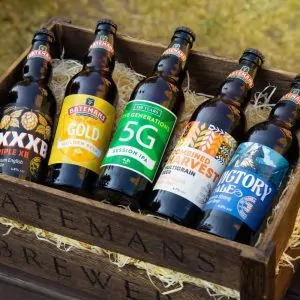September Brewsletter 2025
The 1960s brought big changes to the brewing industry, and we were not immune to the pressures of the time. Some of the brewery’s smaller pubs were closed during this period, though care was always taken never to close the last pub in a village. Many of these outlets were little more than private houses with a licence to sell alcohol, often serving pints in someone’s front room. It simply wasn’t viable for all of them to remain open.
The decade also saw the last pint pulled at the Peacock and Royal Hotel in Boston, which had originally been opened by Harry Bateman. In 1965 it was sold for £64,000, later demolished and replaced by a Boots Chemist store.
Meanwhile, the brewing landscape was shifting. Large national brewers were pushing technical innovations that prioritised quantity over quality. The rise of filtered, pasteurised, carbonated keg beers, often criticised as lifeless and tasteless, was accompanied by a surge in demand for mass-produced lagers, typically licensed imitations of European, Canadian, and Australian brands. These beers could be manufactured cheaply, in vast factories, and distributed nationwide.
To compete, Batemans built a basic keg washer and filler, and even repurposed a second-hand milk pasteuriser. But George Bateman’s heart wasn’t in it. He was deeply committed to traditional brewing and the craft of cask-conditioned beer, and he continued to focus his passion there.
The 1970s proved equally challenging. National brewers were aggressively expanding, taking over and often closing many of the country’s much-loved local and regional breweries. Yet at the same time, there were signs of hope. Drinkers began turning away from bland keg beers such as Watneys Red Barrel and Double Diamond, and rediscovering the quality and flavour of traditional English cask ales.
It was becoming increasingly clear that Batemans would need to stand firm to protect its independence and defend its heritage.
Until next month, cheers, and thanks for reading.



